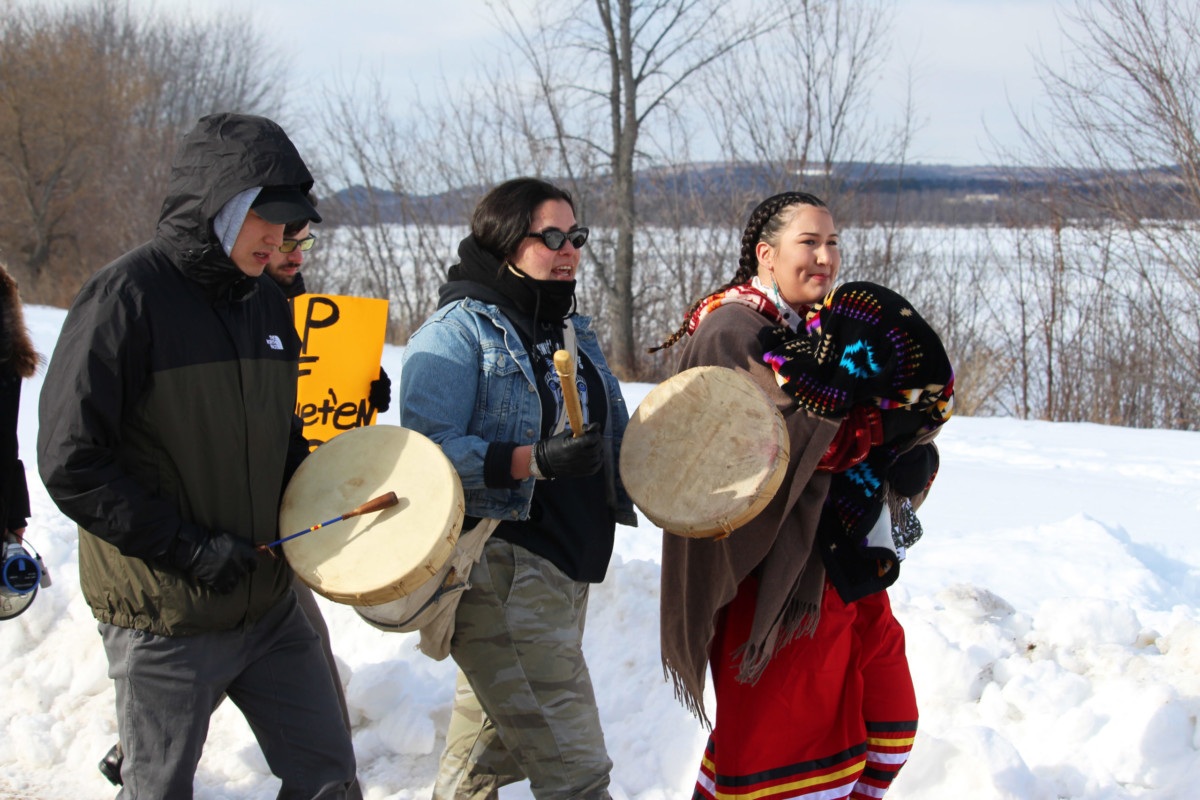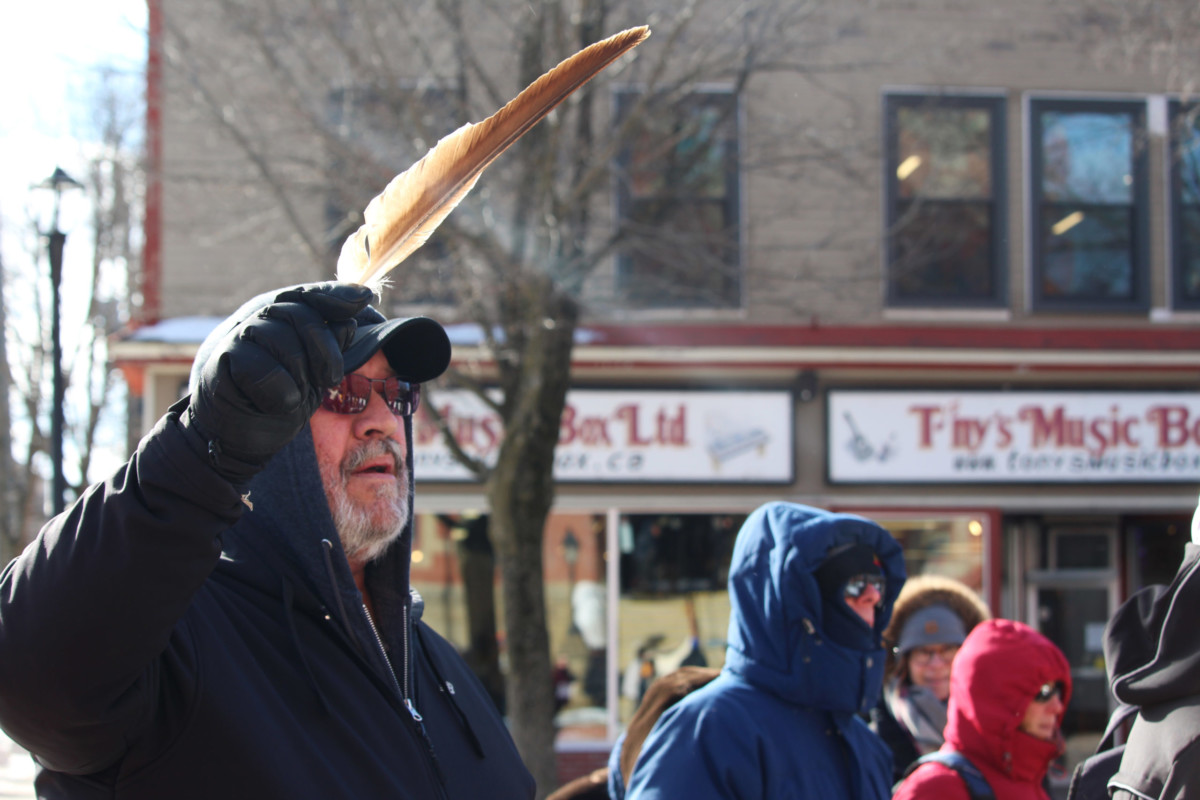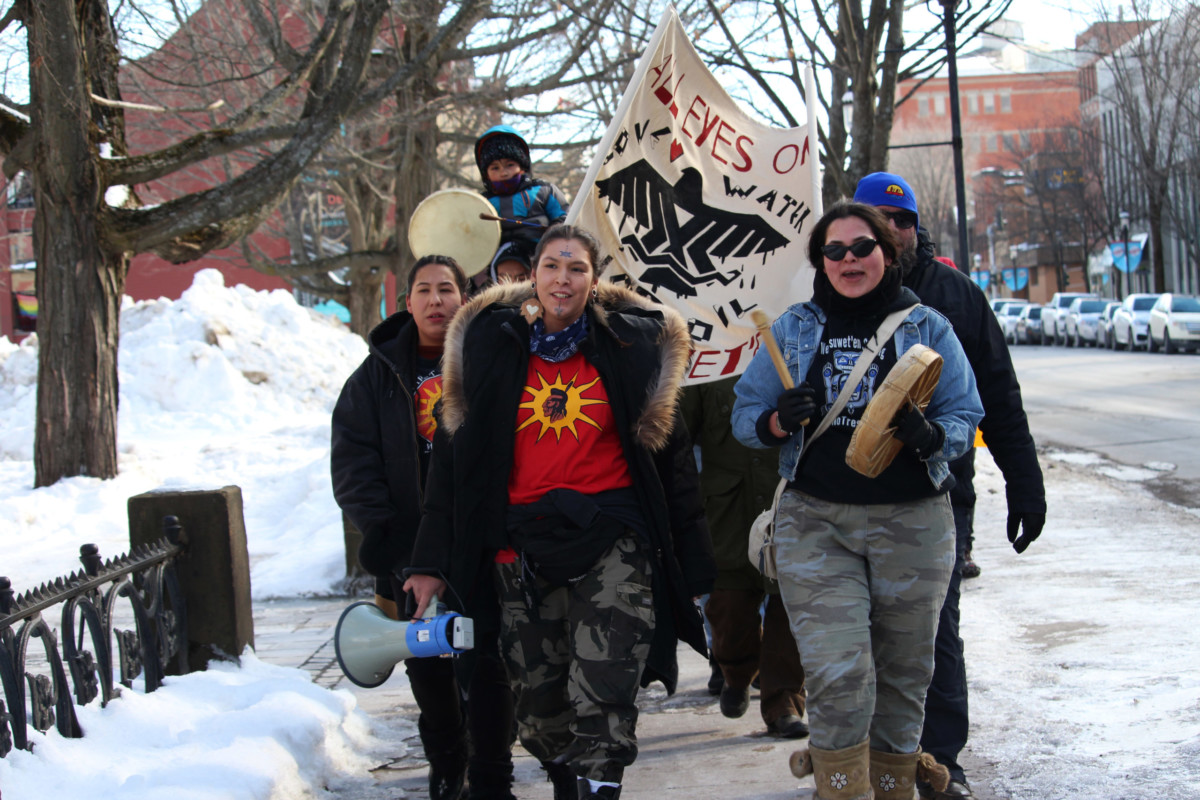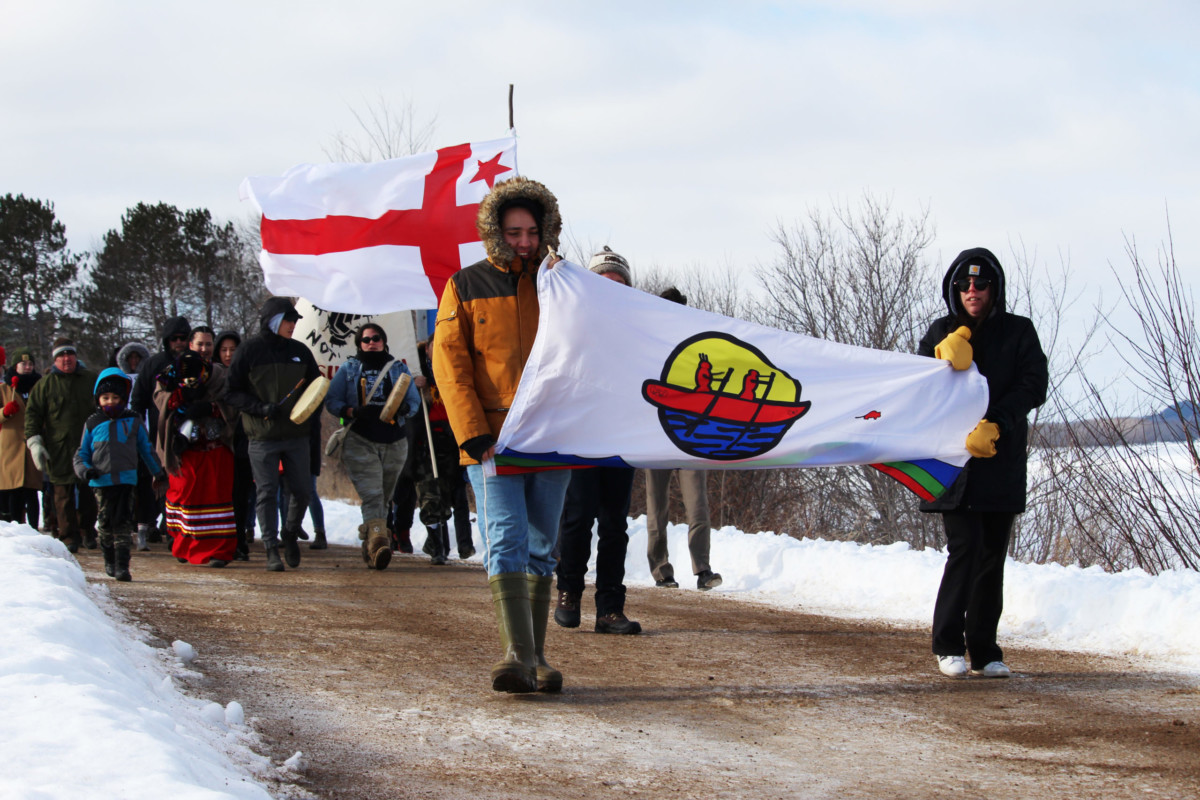Indigenous and non-Indigenous supporters marched in the Fredericton-based solidarity rally on Jan. 29 to show solidarity with Wet’suwet’en hereditary chiefs who have been working to stop the Coastal GasLink pipeline from crossing their land.
Sis Moqon organized the Fredericton solidarity rally after she noticed the issue was continually coming up in a group she attends that discusses Indigenous matters. Approximately 50 people participated in the rally.
“It can start to seem powerless. Where it’s going to court and they’re ruling the RCMP can come on their land and evict them.”
“They’re just trying to look after their territory for the next generation.”

Nothing new
On Dec. 31, 2019 the Supreme Court of British Columbia ruled against Wet’suwet’en by granting Coastal GasLink an injunction order and allowing them to move forward with their work. On Jan. 7, Coastal GasLink posted the injunction giving people 72 hours to clear the work site. It also gave RCMP permission to remove anyone who continues blocking the site.
A year ago Coastal GasLink was granted an interim injunction order for the same issue. The first injunction led to over a dozen arrests.
Coastal GasLink has signed agreements with First Nations communities along the pipeline route and the elected chiefs of Wet’suwet’en. However, traditionally it’s the hereditary chiefs who make decisions on territories. The hereditary chiefs on Wet’suwet’en territory have not approved the pipeline.
Similar matters are happening across the country. In Alberta, an Indigenous climate action group, Tiny House Warriors, are protesting against a proposed oil sands mine. The mine would transport its products through the Trans Mountain pipeline. The pipeline crosses through Indigenous land.
In New Brunswick, the Sisson Mine was approved by the provincial government in 2015. Since its approval there has been opposition by Indigenous communities. It was approved federally in July.
On Jan. 30, eight Wet’suwet’en hereditary chiefs released a statement saying they have agreed to enter discussion with the province of British Columbia for seven days. The talks are being referred to as Wiggus which is the Wet’suwet’en word for respect.

Premier John Horgan, who has previously denied meetings with the hereditary chiefs, is not expected to attend.
Having each other’s backs
Grand Chief of the Wolastoq Grand Council Ron Tremblay said he feels it’s important to show the government that hereditary and traditional chiefs need to be at the table when discussing any resource development.
“Here in the East Coast, we’re facing the same dilemma in relation to the Sisson Brook tungsten mine that’s in our sacred homeland. We’re standing shoulder to shoulder with our brothers and sisters in the West Coast.”

Tremblay said the government needs to give space for traditional governance and respect the autonomy of Indigenous land.
St. Thomas University student Justice Gruben marched in the rally and said it left him feeling empowered.
“It seems that as Indigenous peoples we’re the only ones that really have each other’s backs, through and through,” said Gruben.
“You feel like you’re really part of something bigger than yourself. Even though it was small, it just shows the support that’s there,” said Gruben.

“We all showed up, we were there, we made commitments and sacrifices.”
Gruben said it’s important to show solidarity because of the collective identity Indigenous peoples share.
“We are a distinct group of peoples with different histories and there are many different nations with many different dialects, many different languages and histories as well. But we do all share a common struggle in this fight against colonialism.”

